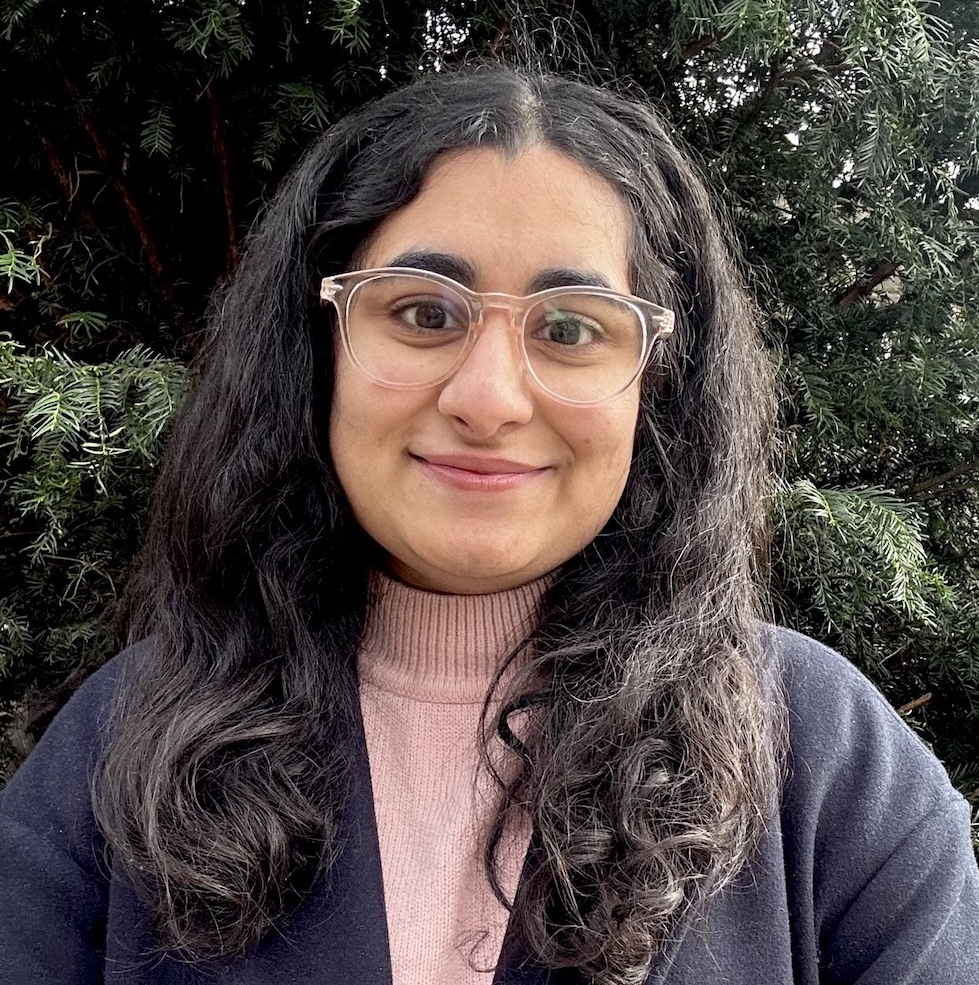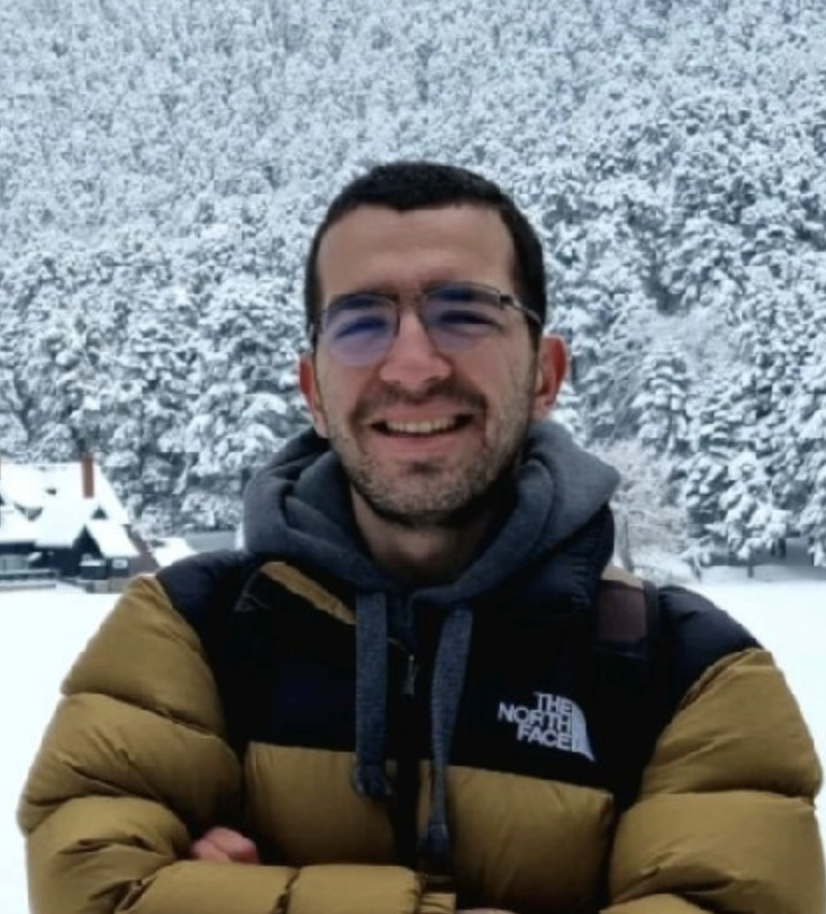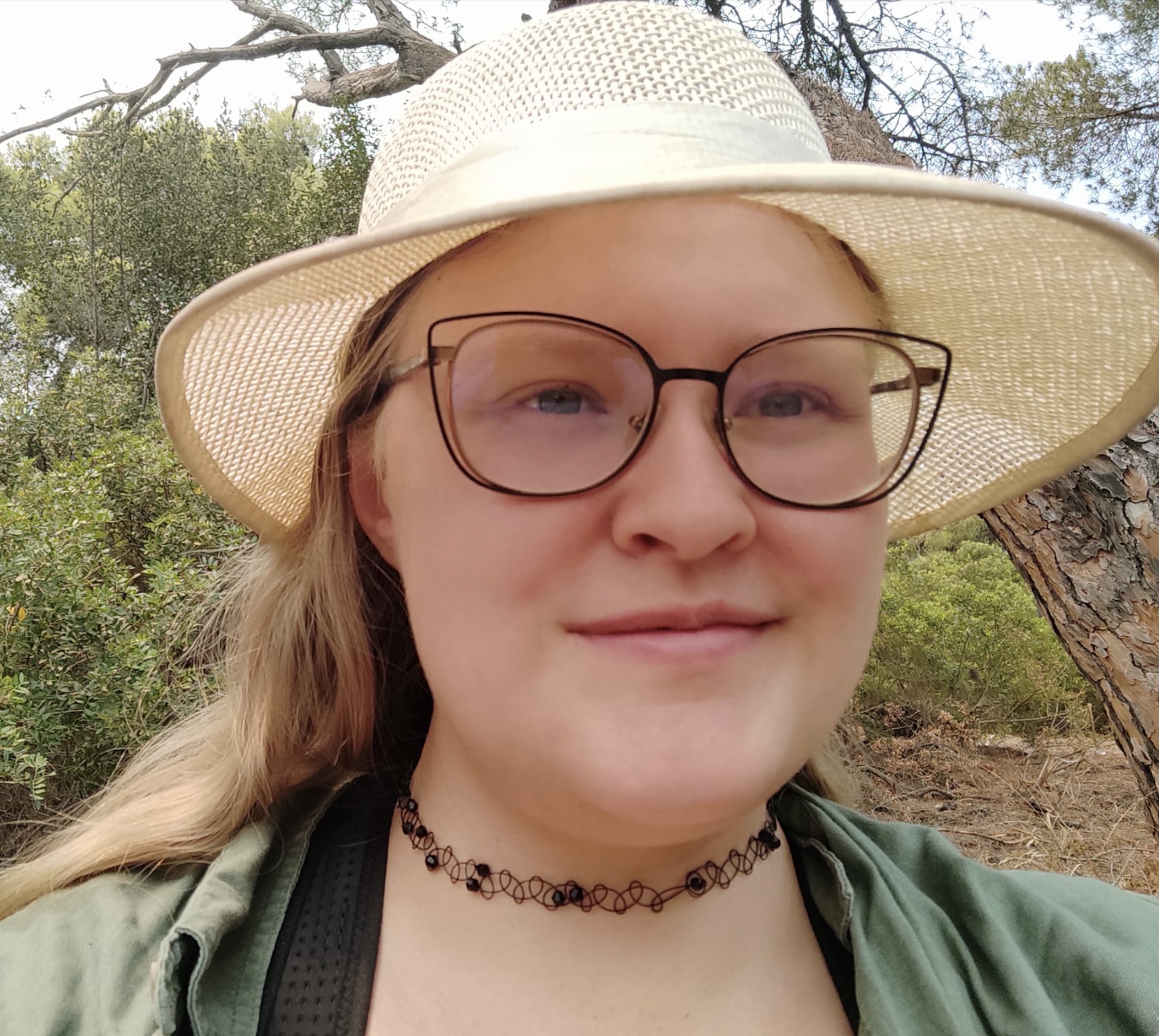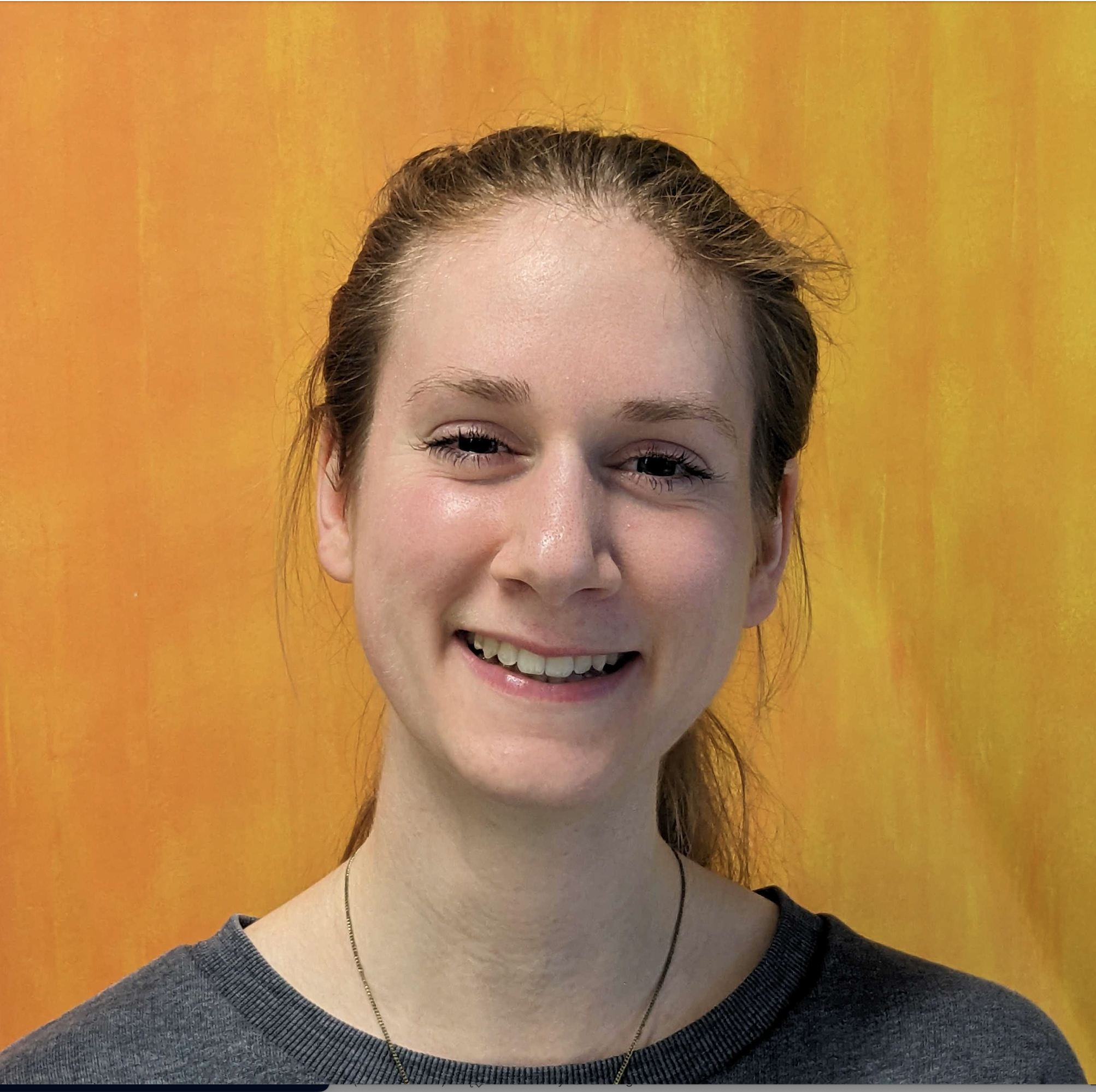Undergraduate students
Interested in doing a practical, bachelor or master thesis in our lab? Please send Hannah an email with your research interests.

I'm a neuroscientist interested in understanding how animals navigate in complex and dynamic environments. In my free time I sew quilts and garments and practice Ashtanga yoga. Learn more about me on my personal website.
Originally from Germany, I studied biomedicine at the University of Würzburg, before transitioning to a masters in Computational Biology and Bioinformatics at the ETH/University Zurich. For my PhD I worked with Berthold Hedwig at the University of Cambridge and Vivek Jayaraman at HHMI Janelia working on navigational behaviors in crickets and fruit flies. During this time I developed virtual reality techniques for head-fixed insects, which I combined with in-vivo calcium imaging during my postdoc to study neural mechanisms supporting orientation in complex and dynamic environments. In 2023 returned to Würzburg to start this lab.
CV
I am an aspiring neuroscientist with an interest in studying flexible decision-making behavior and how this helps animals to adapt to their environment. I have experience working with Drosophila, conducting behavior assays to study the impact of environmental stimuli on sleep and navigation. Besides my research, I enjoy exploring new avenues for personal growth. I love reading, nurturing my green thumb, and exploring new places.
I hold a Master's degree in Applied Biosciences and Biotechnology from Imperial College London, and have worked in science communication and outreach. Originally from India, I moved to London for my master's and am now pursuing a joint PhD in the Haberkern and Ache Labs at the University of Würzburg.

I started my training in Psychology from Ozyegin University, Turkey, where I explored the relationship between the transitivity of actions and perceptual capacity in humans under the tutelage of Ercenur Ünal. Driven by a desire to study neural mechanisms underlying behavior, I moved to Bielefeld, Germany for my master’s in Behavioral Neuroscience, where I worked with Martin Strube-Bloss on the Indian stick insect, and later in the lab of Martin Egelhaaf on the structure change of the bumblebee learning flight. I also spent time in the Couzin-Fuchs lab (Konstanz), investigating the behavioral phase change dynamics in the desert locust. In addition to my laboratory research, I served as a Graduate Research Assistant on a DFG project.
For my PhD, I aim to use connectomics and virtual reality to study of neural correlates of spatial navigation. My goal is to uncover how neural circuit architecture and function enable animals to adapt to dynamic environments which is crucial for effective behavior. Outside the lab, I'm a music fanatic and an alternative music superfan –especially shoegaze and grunge– so I attend many concerts in my free time. I’m also an amateur ambient techno music producer, with one album released and another on the way.

I am interested in magnetoreception and navigation behavior in ants. During my master’s degree in Biosciences at the University of Würzburg I explored the role of antennae as potential sensors for magnetic fields in desert ants, Cataglyphis nodus. This research built on my earlier work during my bachelor’s degree, where I sought to characterize the magnetic compass function in foraging desert ants. This field of study continues to inspire my work today.
Throughout my studies, I have gained extensive field experience. During the summers of 2021, 2022, and 2024, I conducted fieldwork in Greece on C. nodus and took on a leadership role within the research team in 2024. Additionally, from October 2023 to March 2024, I held a short-term fellowship with CRC/SFB 1372, “Magnetoreception and Navigation in Vertebrates”.

I am interested in neuroanatomy and its connection to development of behavior and orientation. My focus in pervious experiments was on neuronal analysis in bumblebees and zebra fish, Danio rerio.
During my Bachelor thesis in Würzburg I analyzed differences in the morphology in the dopaminergic neurotransmitter system in zebrafish foxP2 mutants. Due to my passion to neuroanatomy, I decided to do one of my masters main projects in the Haberkern lab to help with reconstructing a connectome of the clonal raider ants brain.
Are you curious about the neural mechanisms that allow insects to navigate a complex and highly dynamic world despite having just a tiny brain? We currently not have open funded positions, but please contact us to discuss funding oportunities and future positions.
Interested in doing a practical, bachelor or master thesis in our lab? Please send Hannah an email with your research interests.
We currently do not have PhD open positions. If you are interested in applying for a fellowship to joint the lab, please contact Hannah. Please include a brief introduction of yourself covering training, past research experiences and current research interests, as well as your ideas for projects to carry out in the lab.
We are currently have an open position for a postdoc (up to 3 years, fully funded). The ideal candidate would have prior experience in neurophysiology and Drosophila neural circuits studies, but we are open to candidates with a PhD in an adjacent field and strong interest in the topic. If you are interested, please email Hannah and include a brief description for why you are interested in the lab, and what your goals and expectations for a postdoc are. Please also include a CV and a manuscript that illustrates your past research and contact information for possible references.